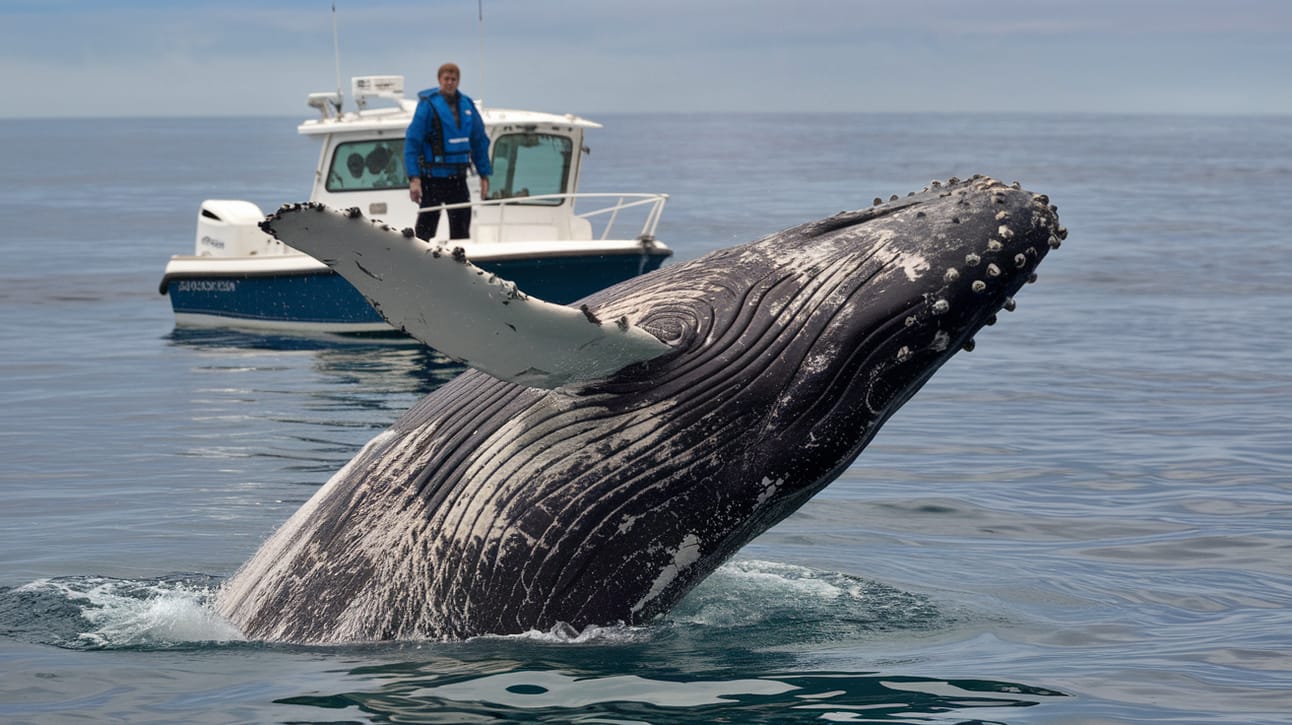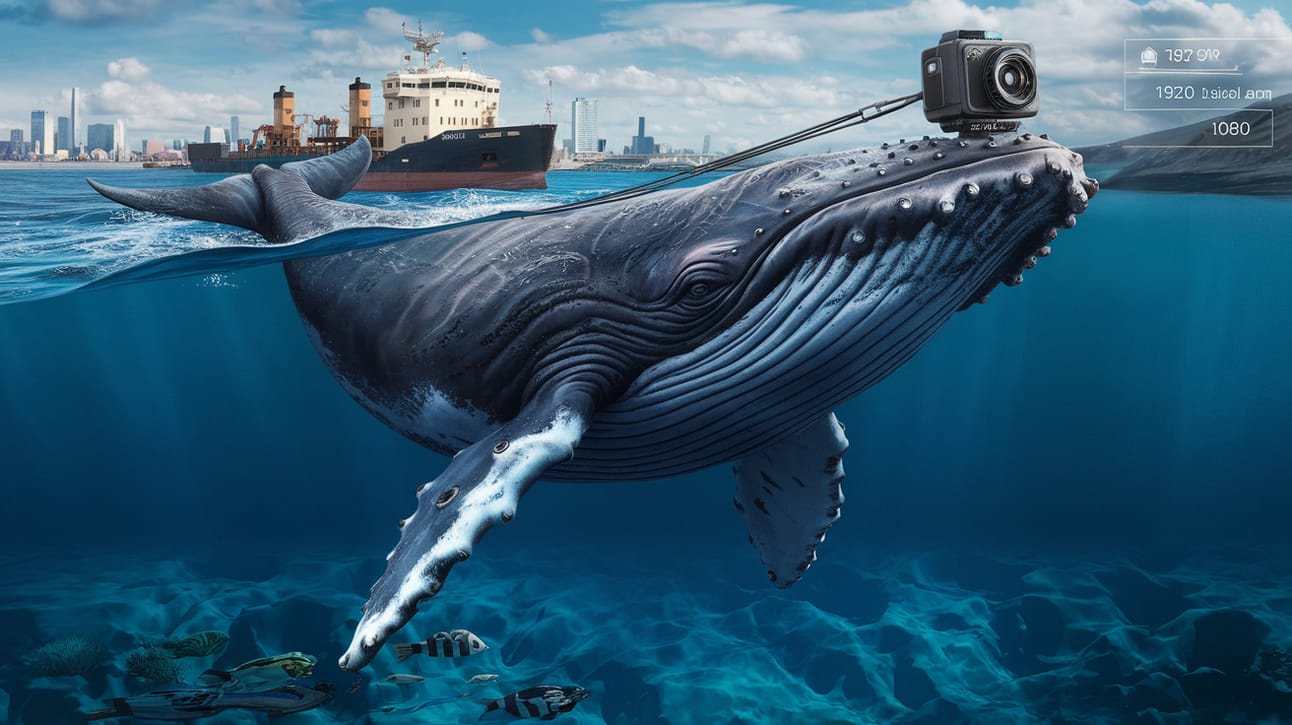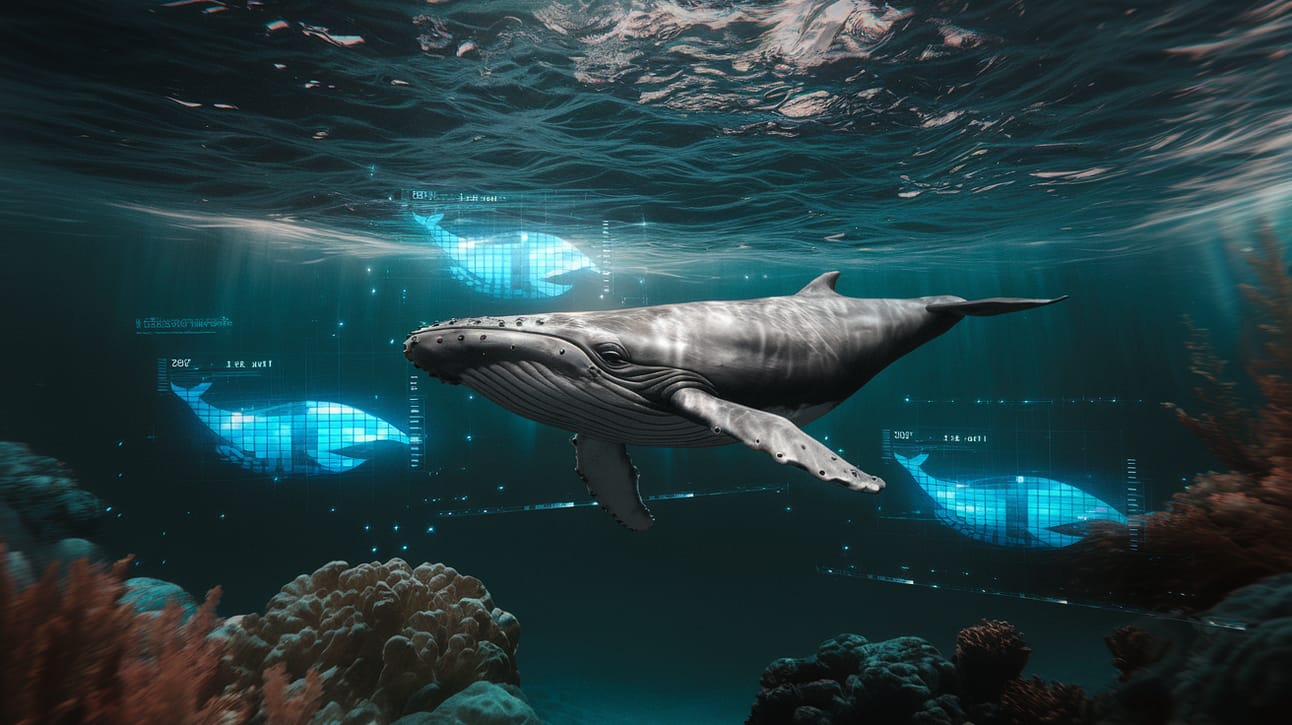- Green Glow
- Posts
- 🌱 Whales as Scientists: Tracking Climate Change Through the Deep 🐋🔬🌎
🌱 Whales as Scientists: Tracking Climate Change Through the Deep 🐋🔬🌎
Discover how southern right whales are becoming key players in climate change research. Learn about their role as sentinel species, advanced tracking technologies, AI-powered identification, and the power of citizen science in marine conservation.
If you're frustrated by one-sided reporting, our 5-minute newsletter is the missing piece. We sift through 100+ sources to bring you comprehensive, unbiased news—free from political agendas. Stay informed with factual coverage on the topics that matter.
Southern right whales, once pushed to the brink of extinction by whaling, are now playing an unexpected yet pivotal role in the fight against climate change. These majestic marine mammals are not just indicators of the health of our oceans but have become vital tools for scientists striving to understand the profound changes happening beneath the waves. By combining advanced technology, innovative research techniques, and citizen science, whales are providing a wealth of data that is helping researchers tackle one of the greatest challenges of our time: climate change. The survival of these species is intertwined with the health of their ecosystems, making their study a priority for understanding the broader implications of environmental shifts. As these "scientist" whales traverse vast distances and dive to unimaginable depths, they collect information that helps to decipher the intricate web of life underwater. This symbiotic relationship between researchers and whales is shedding light on the invisible dynamics of the ocean. Beyond their ecological importance, whales symbolize hope, demonstrating that species can recover and adapt when given a chance. Their resurgence is not just a conservation triumph but also a beacon for how nature and science can coexist to confront environmental crises.
Table of Contents

The Rise of Whales as Sentinel Species
Southern right whales are considered "sentinel species," meaning their behavior, health, and population trends reflect broader changes in the marine ecosystem. As climate change disrupts ocean temperatures, currents, and food supplies, these whales are showing signs of adaptation — but not without consequences. They are breeding less frequently, traveling farther for food, and even losing body mass. These physiological and behavioral changes serve as warning signals, highlighting how even the largest and most resilient marine animals are not immune to the effects of a warming planet. For instance, reductions in krill populations in the Southern Ocean are forcing these whales to modify their diets and expand their migratory routes in search of nourishment. These adaptations, while necessary for survival, indicate a system under duress. Moreover, their plight underscores the cascading effects of climate change, where alterations in one aspect of the environment ripple through entire ecosystems. By studying these changes in whales, scientists can piece together the broader environmental puzzle and gain actionable insights to mitigate the impact of climate change on marine life.
Tracking Whales with Cutting-Edge Technology
Scientists studying southern right whales are leveraging advanced tools like SPOT and CTD (Conductivity Temperature Depth) tags. SPOT tags record the location and movements of whales, while CTD tags transform whales into roaming data collectors, measuring water temperature, salinity, and depth during their dives. These tools have revolutionized marine biology, enabling researchers to observe and understand whale behaviors in ways that were once unimaginable. For example, tracking data has revealed that southern right whales dive to depths of over 460 meters and travel over 15,000 kilometers annually, showcasing their extraordinary endurance and adaptability. Such insights are critical for identifying the environmental conditions they depend on and forecasting the impact of changing oceanographic patterns. Additionally, the data helps pinpoint critical feeding and breeding areas, providing a foundation for conservation strategies tailored to safeguard these habitats. The high precision and reliability of modern tagging technology mean that every dive and every migration offers a glimpse into the underwater world, painting a detailed picture of how whales interact with their environment. This continuous stream of data is essential for understanding the nuances of whale ecology and their role as environmental sentinels.
How Climate Change is Impacting Whale Behavior
Recent data suggests that changes in sea ice and ocean currents are directly affecting the whales' feeding patterns. The decline in Antarctic krill populations, a primary food source, is forcing whales to rely more on copepods in the Antarctic Circumpolar Current. However, this adjustment comes with challenges, as copepods are found in a narrower range of temperature and salinity conditions. This dietary shift not only reduces the whales' energy efficiency but also impacts their ability to reproduce and maintain body condition. Scientists have observed a 23% reduction in body weight since the 1980s, a stark indicator of how climate-induced changes in food availability are taking a toll on these giants. Additionally, the frequency of calving has decreased from every three years to every four or five years, reflecting the energetic toll of these environmental changes. These patterns are troubling, as they suggest that even the southern right whale population, often cited as a conservation success story, faces mounting pressures. By understanding the underlying causes of these changes, researchers hope to develop targeted interventions that can help stabilize whale populations while addressing the root causes of ecosystem disruptions.

Citizen Science and AI: A New Frontier
Beyond tagging technology, citizen science and artificial intelligence (AI) are revolutionizing whale research. Initiatives like the Happy Whale app enable everyday people to contribute to conservation efforts by uploading photographs of whale sightings. AI tools are then used to identify individual whales based on their unique callosity patterns, creating comprehensive databases that researchers can use to track whale populations and migrations. This democratization of science allows for large-scale data collection that would otherwise be impossible due to resource constraints. For example, tourists armed with cameras and drones can capture high-quality images, feeding valuable information into AI systems. These systems not only identify individual whales but also map their movements and behaviors, offering insights into population dynamics across vast regions. Moreover, the use of satellite imagery combined with AI enhances the ability to locate and monitor whales in remote areas, even under challenging weather conditions. By harnessing the power of AI and citizen participation, researchers are building a more detailed and dynamic picture of whale ecology. This approach not only strengthens conservation efforts but also fosters public engagement and awareness, creating a global community invested in protecting marine life.
The Bigger Picture: What Whales Teach Us About Climate Change
The data collected from southern right whales does more than inform conservation efforts—it provides critical insights into the health of the entire marine ecosystem. By studying whales, scientists can better understand how climate change is affecting oceanic systems, from shifting currents to changing prey availability. These insights are invaluable for modeling future scenarios and developing strategies to mitigate the effects of climate change. For example, the shifting distribution of prey species like krill highlights the need for adaptive management of fisheries and marine protected areas. The whales’ migrations and feeding habits also shed light on the interconnectedness of global ocean systems, emphasizing that local changes can have far-reaching consequences. Furthermore, this research underscores the urgency of addressing climate change, as the survival of whales and countless other species hinges on maintaining a stable environment. By acting on the knowledge provided by these sentinel species, policymakers and conservationists can implement measures that not only benefit whales but also safeguard marine biodiversity as a whole. The whales’ resilience and adaptability serve as a reminder of nature’s capacity for recovery, provided we take decisive action to address environmental challenges.
Challenges and Hope for the Future
Despite the groundbreaking progress in whale research, challenges remain. Funding constraints and the high cost of deploying advanced technologies limit the scope of what researchers can achieve. Each SPOT tag costs thousands of dollars, and the deployment process requires skilled personnel and specialized equipment. However, advancements in tagging technology, the growing involvement of citizen scientists, and the integration of AI are paving the way for more accessible and affordable solutions. For example, researchers are exploring the possibility of developing longer-lasting tags and increasing the efficiency of data collection processes. Southern right whales have already overcome immense adversity, surviving near extinction and adapting to a rapidly changing world. Their resilience is a testament to the possibility of recovery and renewal. As the tools for studying and protecting these whales become more sophisticated, the insights they provide will be instrumental in crafting solutions to the climate crisis. By continuing to study and protect these ocean giants, we not only safeguard their future but also deepen our understanding of the planet's most pressing challenges.

Conclusion
Whales are no longer just symbols of marine conservation; they are active participants in the scientific quest to understand and combat climate change. Through their migrations, feeding habits, and resilience, they are telling us stories about the ocean’s health and the effects of human activities on the planet. Their role as “scientists” exemplifies the potential of interdisciplinary research, where biology, technology, and citizen science converge to unravel complex environmental issues. As technology and collaboration advance, the insights provided by these gentle giants could be the key to preserving both marine ecosystems and the intricate balance of life on Earth. By listening to the whales, we are learning not only how to protect them but also how to save ourselves.
FAQs
What role do whales play in studying climate change?
Whales, particularly southern right whales, act as sentinel species, reflecting the health of marine ecosystems. Their behavior, migration, and feeding patterns provide critical insights into how climate change is impacting ocean environments.
How are whales tracked for research purposes?
Scientists use advanced tagging technologies such as SPOT tags for location tracking and CTD tags to collect data on water salinity, temperature, and depth during whale dives. These tools help researchers map whale movements and understand environmental conditions.
What is the significance of southern right whales in climate research?
Southern right whales are particularly valuable for climate research because their feeding and breeding patterns are highly sensitive to environmental changes. Studying them helps scientists understand broader oceanic trends and the impacts of climate change.
How does AI contribute to whale research?
AI tools are used to identify individual whales through their unique markings and analyze satellite imagery for whale locations. This technology enhances data collection efficiency and enables large-scale studies on whale populations and behavior.
You May Also Like
🌱 Why Climate Change is Making Plants Less Nutritious and What It Means for Herbivores 🐄🐼🍃
🌱 Spain's Climate Crisis: From Heatwaves to Devastating Floods 🌍🔥
🌱 Raise or Raze: The High-Stakes Dilemma for Flood-Prone Homeowners 🌧️🏠
🌱 How Climate Change is Stealing Winter Days from Japan’s Iconic Mount Fuji 🗻🔥
🌱 Exposing the West's Double Standards on Climate Change 🌍⚖️
External Links
Follow Us:
X: https://www.x.com/greenglownews
Youtube: https://www.youtube.com/@greenglownews
Instagram: https://www.instagram.com/greenglownews
Sponsored Links

